I walked with my wife today all the way to work. Walking long distances now is customary after more than 2 years of drastic reduction in the number of working vehicles for public transportation and the depletion of cash after years of hyperinflation. Once more we witnessed the unbelievable resiliency endurance of the Venezuelan viejitos (elders).
Exhibit 1 (7:30 AM)
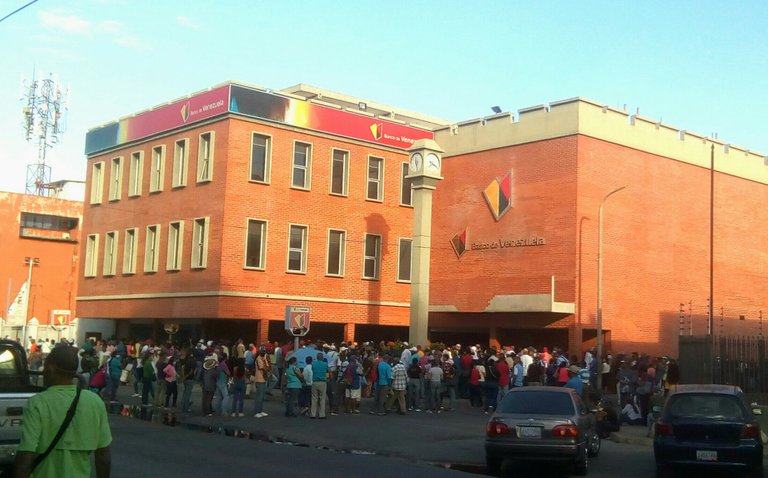

Every month, around this date, any bank in Venezuela will provide you with great pictures of what it means for any economy to allow a socialist/communist regime to take over the State and all its institutions.
Two blocks down the same street...
Exhibit 2 (7:30 AM)
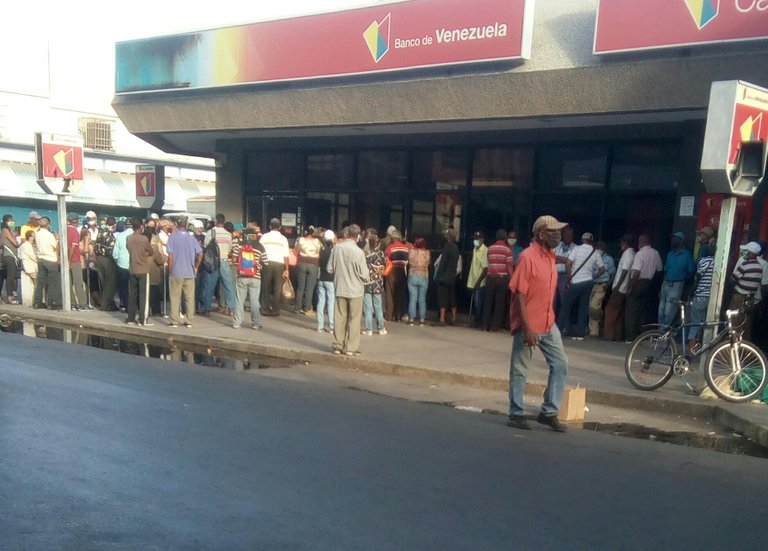
Officially, they are taking care of their vulnerable citizens, but you can imagine the risks all these senior citizens take when they do this, even without Covid-19. No ambulance around; no medical personell in case of emergencies, which always arise; not even free water.
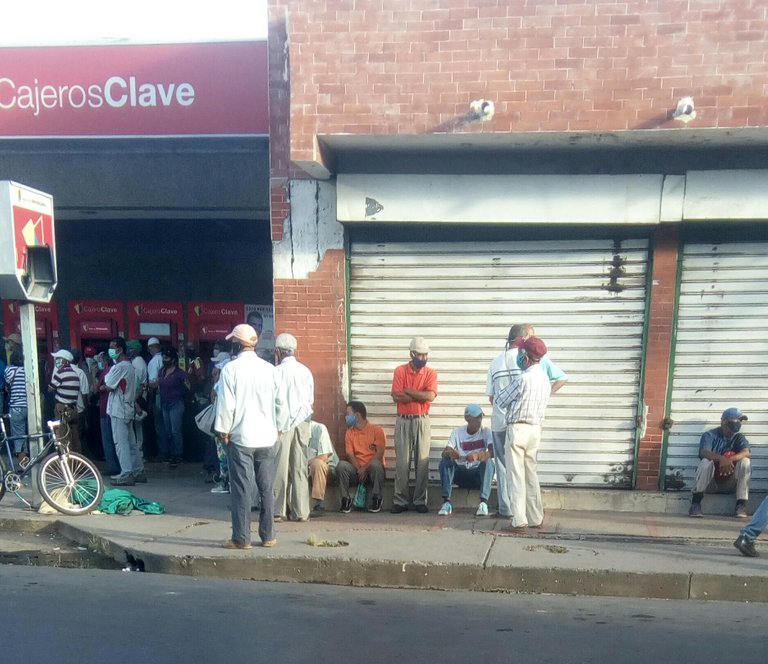
Most of the people in these lines are 55 and older. They have been in these lines since dusk. Many are very very old and sick, but banks cannot accomodate so many in their small offices. This is what happens when an irresponsible government, as part of their populist measures, gives pensions to millions of elders without making technological or logistic adjustments to really honor the alleged love and respect they have for the elder. I was curious as to the amount of money they were able to get after their long wait. I asked some of them and I was shocked at their answer. How much money are these senior citizens so desperately waiting for:
400,000 Bs cash ($ 0.22)
3 hours later
On average, these seniors wait some 3 hours to get their pensions, enough to exhaust any young healthy person. So much for vindicating the rights of the elders
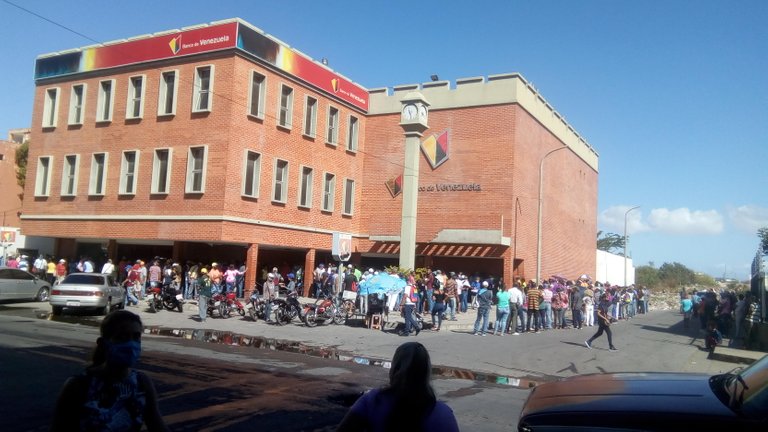
The amazing thing is that, according to some of the viejitos I talked to, in order for them to get "enough" cash to buy anything, they do this as many days in a raw as their bodies allow them to, knowing that some days, after hours waiting the bank's doorman will announce: "there is no cash, please come back another day."
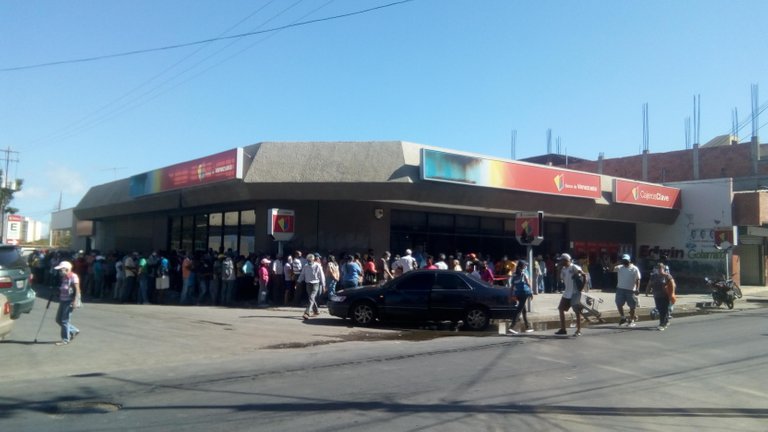
Even collecting their hole monthly pension (Bs 1,200,000 = $0.66) after days waiting in lines these people will not be able to buy anything significant. I am trying to understand the logic of their sacrifice, their martyrdom, their stubborness.
They were tricked with the Petro, the government-run crypto currency to which their pensions were going to be anchored. They were told they'd get half a Petro a month. Back then it was about $6. Now the Petro is worth $60 but the pensions are not paying the $30 as they were supposed to. So much for social justice.
When we see countries like Ecuador, about to elect a new president that is promissing exactly the things that we have seen materialized here, I can't help but wondering who is more crazy: the crowd that risk their health waiting under scortching sun for hours to get $ 0.22 or the countries that are eagerly doing everything (they shouldn't) to become that crowd.
Thanks for stopping by


Wow. No words. Excellent insight. And it's been going on so long, no end in sight. What do you think needs to be done? I know that's an unanswerable question.
Actually, it can be answered and solved, but most likely we won't have in this decade the political leadership needed to materialize those aspirations.
I just took these pictures, one hour ago. It will be like this all week.
This misery-spreading system can and must be undone. Countries can and should protect their most vulnerable population without ruining everyone else's lives in the attempt while a few get richer.
Transparency, accountability, an economic policy that promotes innovation, excellence and prosperity for all is possible, but it must be done without ideological orthodoxy running the show.
People must cut the umbilical cord that makes them so dependent of big state, but the State must guarantee that people can live and thrive without its support or at least without making it contingent to ideological affiliation.